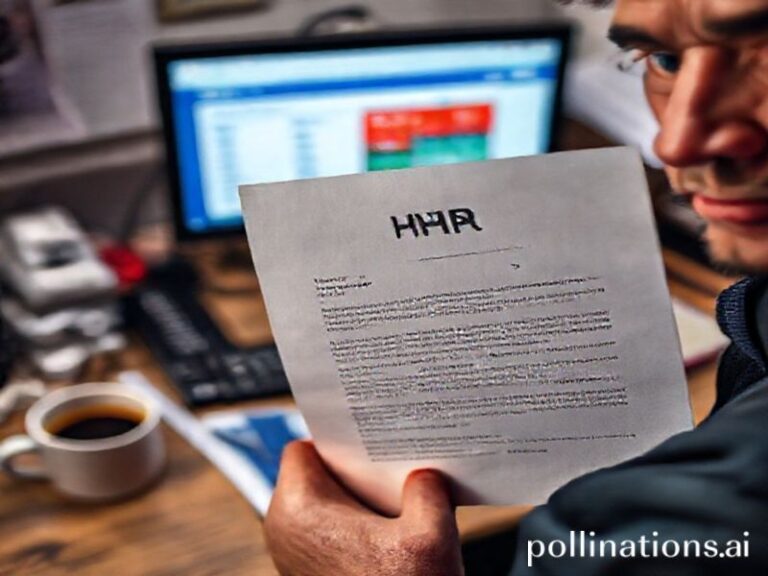Joy Crookes: Exporting Post-Brexit Heartbreak to a World on the Brink
London, UK — At first glance, Joy Crookes is just another precocious 25-year-old with a record deal, a South London postcode, and an Instagram account that makes you wonder why you ever bothered with breakfast. Yet the moment her contralto—equal parts cigarette smoke and lullaby—slides across a track like “Feet Don’t Fail Me Now,” you realize she’s exporting something far rarer than another pop confection: she’s air-freighting post-Brexit melancholy to a planet already overdosing on nostalgia.
From São Paulo rooftop bars to Seoul listening lounges, DJs are flipping Crookes’ neo-soul confessionals into late-night anthems for the chronically under-medicated. Her 2021 debut album, Skin, has become a low-key lingua franca among millennials who suspect capitalism has already auctioned off their futures but still enjoy a good groove. In Mexico City, graphic designers debate whether the crimson sari she wore on the cover signifies diaspora rebellion or savvy marketing. In Lagos, Uber drivers time their Saturday night playlists so the horn section on “When You Were Mine” syncs with gridlock—because nothing punctuates heartbreak like exhaust fumes at 3 a.m.
Crookes herself is a walking Venn diagram of modern identity: Irish-Bangladeshi heritage, Catholic schooling, gentrified Brixton upbringing. Translation for our international readership: she contains enough demographic contradictions to qualify as her own United Nations subcommittee. While European parliaments scream at each other about borders, she simply sings over them, proving that syncopated heartbreak is more effective than any Schengen reform.
The global implications? Let’s be cynical, shall we? Streaming platforms—those benevolent data vampires—have calculated that “brown girl with vintage Fender and vulnerable lyrics” tests well across five continents. Algorithms adore her the way hedge funds adore distressed debt. Still, there’s something deliciously subversive in watching a second-generation immigrant outsell the sons of Etonians who still think curry was invented to soak up lager. Every Spotify spin is a tiny act of fiscal revenge, siphoning micro-pennies from trust funds into her publishers’ coffers. Eat the rich, but make it jazz-adjacent.
Meanwhile, luxury brands—ever the ambulance chasers of authenticity—have parachuted her into campaigns from Mumbai malls to Berlin pop-ups. You can now buy a €900 trench coat while listening to a song about generational trauma. Capitalism’s ability to monetize despair would be impressive if it weren’t so tediously predictable. Somewhere in an air-conditioned boardroom, a marketing VP is high-fiving himself for “aligning with raw emotion.” Pass the antidepressants.
Yet the broader significance lies not in boardroom hijinks but in how Crookes’ soundtracks the quiet apocalypse of everyday life. Climate anxiety, rent spikes, the slow-motion car crash of liberal democracy—her lyrics don’t preach; they simply provide a tasteful score. In Warsaw, a barista told me “Power” loops on the café speakers every time the news mentions another heatwave. “It makes sweating feel cinematic,” he shrugged, handing over an $8 flat white with the cheerful fatalism of a generation that assumes collapse is a pre-installed app.
Even geopolitically, she’s a soft-power anomaly. Britain currently exports little besides political satire and contagious inflation, yet here’s a Londoner teaching the world how to ache elegantly in three languages. If diplomats possessed half her emotional intelligence, we’d have solved the climate crisis over a plate of samosas and a broken-hearted horn solo.
Conclusion? Joy Crookes isn’t saving the world—nobody is, despite what TED Talks insist—but she’s providing the elevator music for its slow descent. Whether you’re stuck in Jakarta traffic or queuing for visas outside some indifferent embassy, her voice reminds you that heartbreak is, at minimum, a shared jurisdiction. And in a fractured era where everyone’s screaming into their own algorithmic void, that’s a kind of grim, beautiful solidarity. Tune in, drop baggage, try not to think about sea levels.







